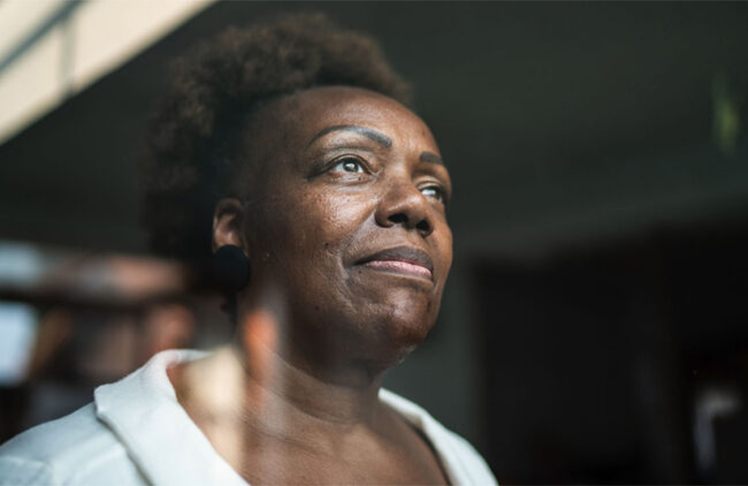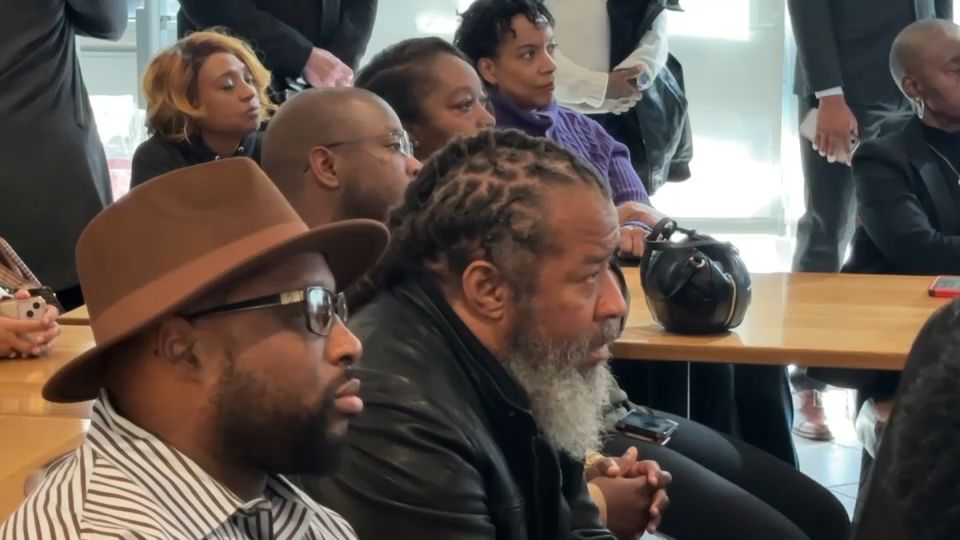- BlackVoter.Org
- Posts
- BlackVoter.Org
BlackVoter.Org

A recent study highlights alarming findings on dementia risks for African Americans, particularly for those over 55, revealing a shocking 42% chance of developing the condition—more than double previous estimates. As the aging U.
S. population surges, the researchers projected around 514,000 new dementia cases this year alone, with numbers potentially reaching a million annually by 2060.
This significant increase has been linked to various factors, including genetics, high blood pressure, obesity, and mental health issues. The research indicates that Black adults and women face even higher risks, emphasizing the need for targeted early intervention strategies.
Additionally, the study connects hearing loss to increased dementia risk, urging for better access to hearing aids. Dr.
Josef Coresh, a key researcher, warns that the growing dementia prevalence poses serious challenges for health policymakers, necessitating enhanced strategies to manage this public health crisis.

A new political action committee is on a mission to amplify Black voices within the political landscape. With a commitment to empowering the Black community, this organization aims to create more opportunities for representation and advocacy.
By fostering engagement and support, they seek to ensure that the perspectives and needs of Black individuals are at the forefront of political discourse. This initiative not only aims to increase voter turnout but also to shape policies that impact the community directly.
As they gear up for critical upcoming elections, the committee is rallying supporters and encouraging participation to drive meaningful change. Together, they hope to build a stronger, more inclusive future for all.

Stacey Abrams once soared as a political star, captivating audiences and energizing voters in Georgia during her narrow 2018 gubernatorial loss to Brian Kemp. Fast forward to 2025, and Abrams’ shine has dimmed significantly.
After a second defeat to Kemp in 2022, where she raised a staggering $54 million but lost by almost 300,000 votes, many Democrats have grown disillusioned with her leadership. Recent ethics violations inflicted further damage, as two nonprofits linked to her admitted to multiple campaign finance breaches from her 2018 campaign, resulting in a hefty $300,000 fine.
This compounded with emerging Democratic challengers for the 2026 gubernatorial race leaves Abrams' future uncertain. Once poised as a beacon of hope, Abrams now faces a political landscape where timing—and perhaps her own missteps—has left her struggling to regain her former glory.

In a compelling discussion at Yale, civil rights leader William Barber II emphasized the urgent need to address poverty, a topic often overlooked in American political discourse. Speaking alongside historian David Blight, Barber argued that politicians’ refusal to confront poverty not only deepens societal divides but also serves the interests of a select few oligarchs.
His latest book, co-authored with Jonathan Wilson-Hartgrove, challenges the narrative that poverty is solely a Black issue, highlighting its widespread impact across demographics. Barber stresses that nearly 140 million Americans are poor or low-income, urging policymakers to re-center morality in politics and foster solidarity among the impoverished.
He advocates for a "moral analysis" of policies, asking whether they truly promote justice and welfare. Barber's call to action is clear: engage voters by addressing their struggles and uniting across racial lines to create lasting change.

This week in Black history is a celebration of resilience, talent, and groundbreaking milestones! It kicks off with Barney L. Ford, born into slavery on January 22, 1822, whose journey from oppression to wealth exemplifies the power of perseverance.
As "The Father of Soul Music," Sam Cooke was born on January 22, 1931, dazzling the world with hits like "You Send Me." Later, on January 24, Arthur Schomburg, aka the “Sherlock Holmes” of Black history, was born, igniting a passion for uncovering Black narratives.
Noteworthy events include the monumental 1964 ratification of the 24th Amendment abolishing the poll tax and the debut of the iconic mini-series “Roots” in 1977. Additionally, January 27 brings accolades to Ralph Ellison for "The Invisible Man" and a tribute to the legendary gospel singer Mahalia Jackson, who passed away on January 27, 1972.

Former Atlanta Mayor Keisha Lance Bottoms is making a bold comeback to Georgia politics, with her sights set on the governor’s race. Recently, she responded to former President Trump's claim that he fired her from her senior advisory role under Biden, expressing amusement and clarity about her prior resignation.
Bottoms stated, “Never say never,” hinting at her interest in running, especially now that Gov. Brian Kemp is unable to seek a third term.
When asked if Georgia is ready for a woman of color as governor, she confidently affirmed, “Absolutely.” As she shifts her focus back to her home state, Bottoms expresses optimism about her political future and reflects on her previous role, emphasizing her readiness to lead Georgia into a new chapter.

This special section celebrates the 60th anniversary of the Voting Rights Act of 1965, a landmark legislation that transformed American democracy by ensuring voting access for all citizens. As we reflect on this monumental achievement, various articles delve into the ongoing challenges and triumphs surrounding voting rights.
From discussions on the John R. Lewis Voting Rights Advancement Act to the impacts of voter suppression laws, the collection emphasizes the critical importance of safeguarding the voting process today.
It also revisits pivotal moments in history, such as the Selma marches and the enduring influence of leaders like Martin Luther King Jr. and John Lewis.
Despite advancements, issues like gerrymandering and declining Black voter turnout reveal that the fight for equitable voting continues. This commemoration serves as a reminder that the struggle for civil rights is a living legacy that demands our attention and action.